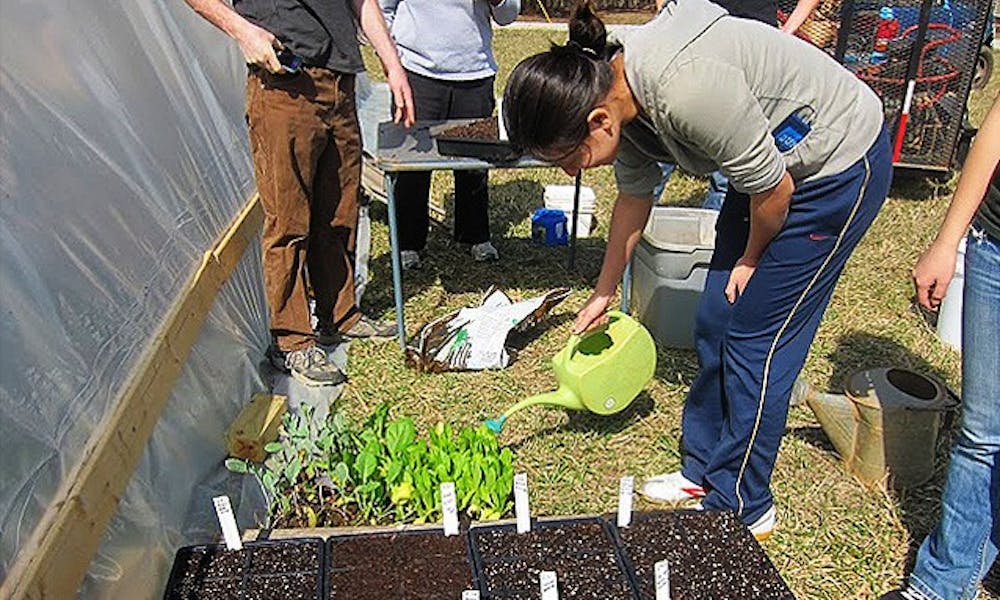Looking for something to do this spring break that isn’t going home or heading off somewhere tropical to party? Do you want a break from the hustle and bustle of everyday life? Are you interested in nature, spending time with land and bonding with people at Duke? If you answered yes to any or all of these questions, you might enjoy Restorative Spring Break: a spring break alternative planned by and hosted at the Duke Campus Farm that will allow students to connect with the Earth and each other.
For those who haven’t heard of the Campus Farm, it’s a small farm owned and operated by Duke that grows food through intensive, environmentally friendly farming methods. This food is then distributed to Duke Dining, Root Causes (a local student-run profit) and members of its community-supported agriculture program. It also employs student interns who assist with day-to-day operations while learning about agriculture and farming practices. However, Duke Campus Farm is more than just a means of cultivating fresh produce and training future agriculturists. It also seeks to be a learning environment which encourages students to engage with and reimagine our current systems of cultivating and valuing food. To do that, the Campus Farm runs educational programs, workshops and workdays open to all students, providing the Duke community with a chance to work on and learn about the farm.
While it has become an increasingly integral part of campus, the Campus Farm is a relatively recent addition, having only existed for twelve years. Its origins lie in a 2010 Food and Energy survey course within the Nicholas School of the Environment, which paired a group of students with Duke Forest to determine if Duke could have a campus farm. After surveying sites and conducting interviews with community members, this group released a feasibility study that showed that Duke could indeed support a farm, which resulted in a year-long, one-acre pilot project. Next, after volunteers from the school and community achieved two successful harvests – the first in winter 2010 and the following in spring 2011 – it was proven a farm could and would work at Duke. The Campus Farm was then officially established with a full-time manager and the twin goals of producing food and providing education. And while it has grown and added more staff and goals since then, it has stayed true to its core mission of educating a community of students while connecting them to the earth.
Restorative Spring break exists for that exact purpose. It is designed as a restorative experience that will let people engage with nature, embodied movement and community during their spring break. To this end, it will feature minimal mandatory fieldwork, in addition to engaging yet relaxing activities like queer ecology lessons, handicrafts, cooking, bonfires and visits to outdoor sites.
The program takes place over three days. It will run Sunday, March 12 from 11:30 a.m. to 5:00 p.m., then from 9:30 a.m. to 3:00 p.m. on March 13 and conclude with an 11:30 a.m. to 8:00 p.m. session on Tuesday, March 14. By only running for three days while still having a significant time commitment, the program provides ample time for students to bond with each other and connect with nature without using their entire spring vacation. As for the cost of participation, students will be provided transportation, lunch and snacks and will have to provide housing and other meals out of pocket – though they can remain in their semester accommodations over break. Students must commit to attending on all three days, and no experience with farming or the Campus Farm is required.
Get The Chronicle straight to your inbox
Signup for our weekly newsletter. Cancel at any time.
Zev van Zanten is a Trinity sophomore and campus arts editor of The Chronicle's 119th volume.

